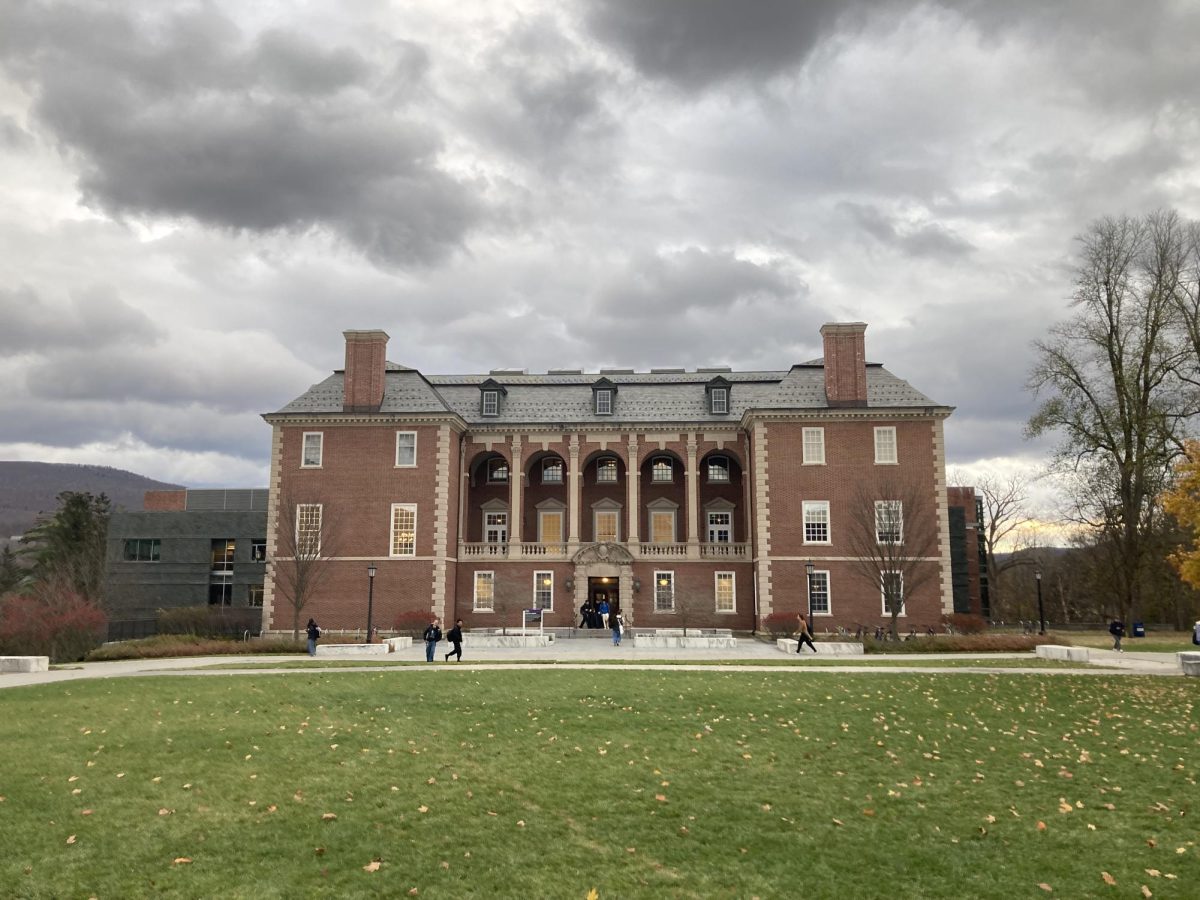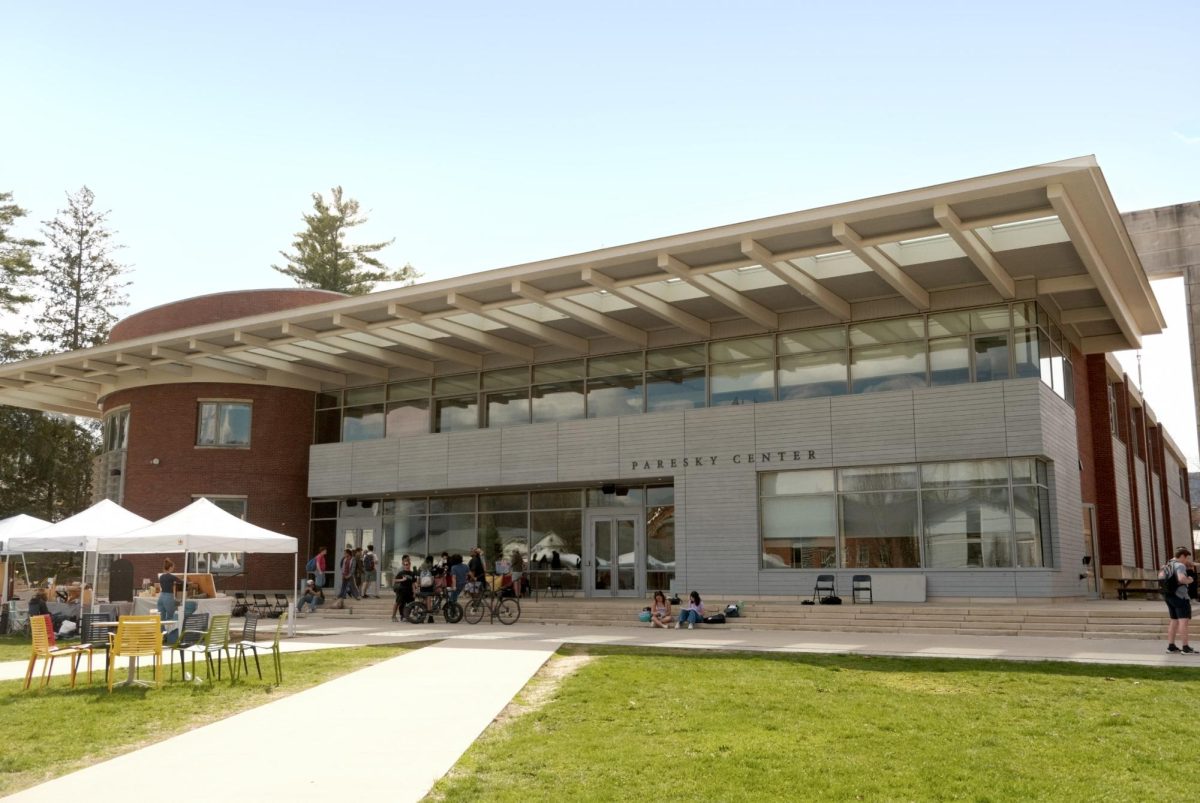The Davis Center (DC) and Special Collections hosted the second session of Archives for Liberation, a year-long series of student-driven workshops highlighting the history of student activism at the College, on Nov. 1 in the Special Collections instruction room.
At the second session, visitors browsed materials from both the DC and Special Collections archives ranging from student group constitutions, to emails and memos, to memes. Among the documents were the original Minority Coalition (MinCo) constitution; documentation about the 1969 occupation of Hopkins Hall by the College’s Afro-American Society, the precursor to the Black Student Union (BSU); and a proposal by a committee of administrators, faculty, and students for the College to build a multicultural center at the College — what would later become the DC.
“We do have our books, [and] we have manuscripts, and those are really important,” Jessika Drmacich, the College’s records manager and digital resources archivist, said. “But we’re also an institutional repository for the histories that go on here, and there are so many different ones.”
The first session of the series took place in October, and the organizers plan to schedule a third in December. Its organization draws heavily from student feedback: The series was in large part a product of conversations between members of the DC and MinCo leaders, said Aly Corey, the associate director for inclusive learning environments at the DC. Corey reached out to Ruth Kramer ’22, the Special Collections postbaccalaureate fellow, and Drmacich over the summer to pitch the creation of the program.
“Many MinCo members have expressed deep interest in the history of activism at Williams, and I proposed this [series] as a way to help deepen their understanding of this history while learning skills in historical research about activism,” Corey wrote in an email to the Record. “At each step of the way, I have been guided by a diverse group of student leaders, with the aim of ensuring that their interests are centered and their vision is guiding the program.”
Kramer told the Record that her approach to organizing the series was in large part inspired by a panel she led during the 2023 Claiming Williams Day, where she spoke about how the College has historically appropriated student activism as a sign of prestige. In emphasizing how a student protest like the occupation of Hopkins Hall was “respectful,” she said, the College is speaking about student experience rather than the students themselves — something she hopes the Archives for Liberation series will address.
Gabriel Mora ’24, a senior advisor for Students of Caribbean Ancestry (SoCA), began attending the series because of the opportunity to discover how students have learned to build and fight for community at the College throughout the years.
“I wanted to explore what kind of valuable information might’ve been hidden within the archives, where the past and present converge to reveal a myriad of narratives,” he wrote in an email to the Record. “My initial intent was to unearth historical records related to SoCA’s history and origins, but I ended up staying to uncover various facets of life at Williams College throughout its history, particularly for students from marginalized backgrounds.”
The work of past student groups in archiving their events, discussions, and histories made much of the series possible. According to Kramer, the records of student life in the archives come from a variety of sources: student organizations that submit documents like meeting notes and flyers, boxes of files found in Bascom House closets, and even submissions of essays, oral histories, or other records by individual students.
Drmacich said that she hopes that hosting the Archives for Liberation might demonstrate to students how and why they should archive their lives at the College.
“Ruth and my colleagues want to make sure that [student] voices are around 100 years from now — or else we get these historical silences, or groups think these conversations have not happened,” Drmacich said. “I would love to inspire students to archive themselves … [because] digital materials are really ephemeral.”
Drmacich added that, through series such as these, Special Collections aims to make the College’s archives easily accessible to students. “For a lot of special collections [at other institutions], you have to make an appointment, you have to sign in,” she said. “It’s not very open, and you feel like you’re watched.” On top of Special Collections’ “no appointment” policy, a series such as the Archives for Liberation allows students to walk in, browse and touch materials at their convenience, and discuss them with other students, faculty, and Special Collections staff members.
For Mora, this ethos has resonated for him during the past two sessions of the series. “The Archives of Liberation series offers a unique opportunity for MinCo groups to interrogate the historical importance of their respective groups and reflect on the pioneering efforts to create, sustain, and nurture community spaces on campus,” he wrote.
“This series should inspire student groups to thoroughly document their experiences on campus and actively submit these records to the school,” Mora continued. “It’s imperative that we establish our enduring presence at this institution, allowing future generations to not only see the events we’ve organized but to also stomach the love, grief, and growth we’ve collectively experienced.”















